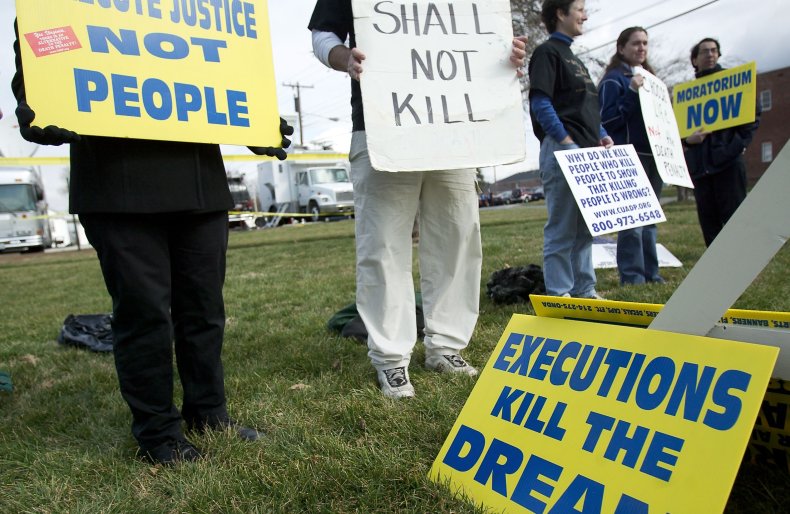Virginia Outlaws Death Penalty After Executing 113 Since 1976, Second Only to Texas
Virginia Governor Ralph Northam outlawed the death penalty on Wednesday, in a state that has executed nearly 1,400 people since colonial times, more than any other U.S. jurisdiction, according to the Death Penalty Information Center.
Northam's announcement made Virginia the 23rd state in the country to ban capital punishment and marked a dramatic shift in its history. In modern times, Virginia is No. 2 after Texas in its number of executions, with 113 since the Supreme Court reinstated the death penalty in 1976, the Associated Press said, citing the Death Penalty Information Center.
"There is no place today for the death penalty in this commonwealth, in the South or in this nation," Northam said Wednesday, shortly before signing the legislation.
"We can't give out the ultimate punishment without being 100 percent sure that we're right, and we can't sentence people to that ultimate punishment knowing that the system doesn't work the same for everyone," Northam said.
By Wednesday, only two men remained on Virginia's death row: Anthony Juniper, who was sentenced to death in 2004 for killing his ex-girlfriend, two of her children and her brother; and Thomas Porter, who was sentenced to die for the 2005 killing of a Norfolk police officer, the Associated Press reported.
Both of their sentences will now be converted to life in prison without parole. Now, in addition to the 23 states that have abolished the death penalty, three others have moratoriums in place that were imposed by their governors.
For more reporting from Newsweek's Benjamin Fearnow, see below:
During his campaign for president, President Joe Biden promised to abolish executions after former President Donald Trump's administration oversaw more executions than any president in more than 120 years.
But death row inmates in federal prisons worry that Biden won't live up to his campaign promise after weeks of the Justice Department taking no action to reverse his successor's controversial restart of capital punishment.
Biden's transition team issued a statement just days after he was named president-elect, in which reiterated that he "opposes the death penalty now and in the future."
But Biden never stated if there would be immediate action to halt federal executions once he took office, even as his predecessor carried out a record number during his final weeks in office.
Now, Biden's weeks-long silence over plans to abolish the death penalty has death row inmates across the U.S. wracked with anxiety.
"There's not a day that goes by that we're not scanning the news for hints of when or if the Biden administration will take meaningful action to implement his promises," said Rejon Taylor, 36, who was sentenced to death in 2008 for killing an Atlanta restaurant owner, during an interview with the AP.

For more reporting from the Associated Press, see below:
Death penalty opponents say passing the legislation in Virginia could mark the beginning of the end for capital punishment in the South, where most executions currently take place.
The bills were the culmination of a years-long battle by Democrats who argued the death penalty has been applied disproportionately to people of color, the mentally ill and the poor. Republicans unsuccessfully argued that the death penalty should remain a sentencing option for especially heinous crimes and to bring justice to victims and their families.
Virginia's new Democratic majority, in full control of the General Assembly for a second year, won the debate last month when both the Senate and House of Delegates passed bills banning capital punishment.
"Virginia's death penalty has deep roots in slavery, lynchings and Jim Crow segregation," said Robert Dunham, executive director of the Death Penalty Information Center. "The symbolic value of dismantling this tool that has been used historically as a mechanism for racial oppression by a Legislature sitting in the former capital of the Confederacy can't be overstated."

